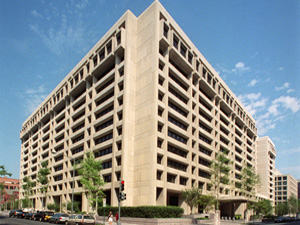
CIS badly affected by global recession - IMF
“It was hit on several fronts. The large decline in commodity prices was the first. Capital outflows was the second: many of the countries in the Commonwealth of Independent States had relied on strong capital inflows in order to fund booms in energy sectors but also general business. The third is, of course, the large decline in international trade. So, they have been hit by a trifecta of shocks and therefore very badly affected”, he said.
“Now, for Russia specifically, we are seeing activity contract by about 7 1/2 percent, which is very deep, in 2009 and then a recovery taking hold in 2010 with growth of about 1.5 percent, thanks to strong stimulus measures and the recovery elsewhere in the world.
He said: “Commodity prices do play an important role. We do not develop an independent forecast of commodity prices. What we do is we use the information in markets to extrapolate the price from what the markets predict and that is what our projections are based on. Based on that information, oil prices for 2009 in our projections are assumed at just above US$60 per barrel and for 2010 just above US$75 per barrel. So, this will be helping a number of the CIS economies.”
In general, Russia is very important for the CIS. The deep decline in Russian activity is affecting a number of other countries around Russia that are less involved in energy exports, on account of lower remittances and lower trade with Russia.
The CIS economies will shrink 6.7% in 2009, more than reversing last year’s 5.5% expansion and worse than the 5.0% fall that was expected in July, the IMF forecasts.
Russia, by far the biggest economy in the bloc, will contract 7.5 percent this year, leading to a sharp fall in remittances to neighbouring countries.
The sharpest decline in the region is forecast in Armenia, with a 15.6% GDP slump, followed by Ukraine with a 14% contraction.
The best performers will be Azerbaijan and Uzbekistan, with growth of 7.5% and 7% respectively this year.
“For energy-exporting economies, the growth outlook is more benign. Azerbaijan and Uzbekistan are projected to experience only a moderate slowdown in 2009, followed by unchanged growth in 2010, as energy prices recover and fiscal expansions support domestic demand,” the IMF report said.